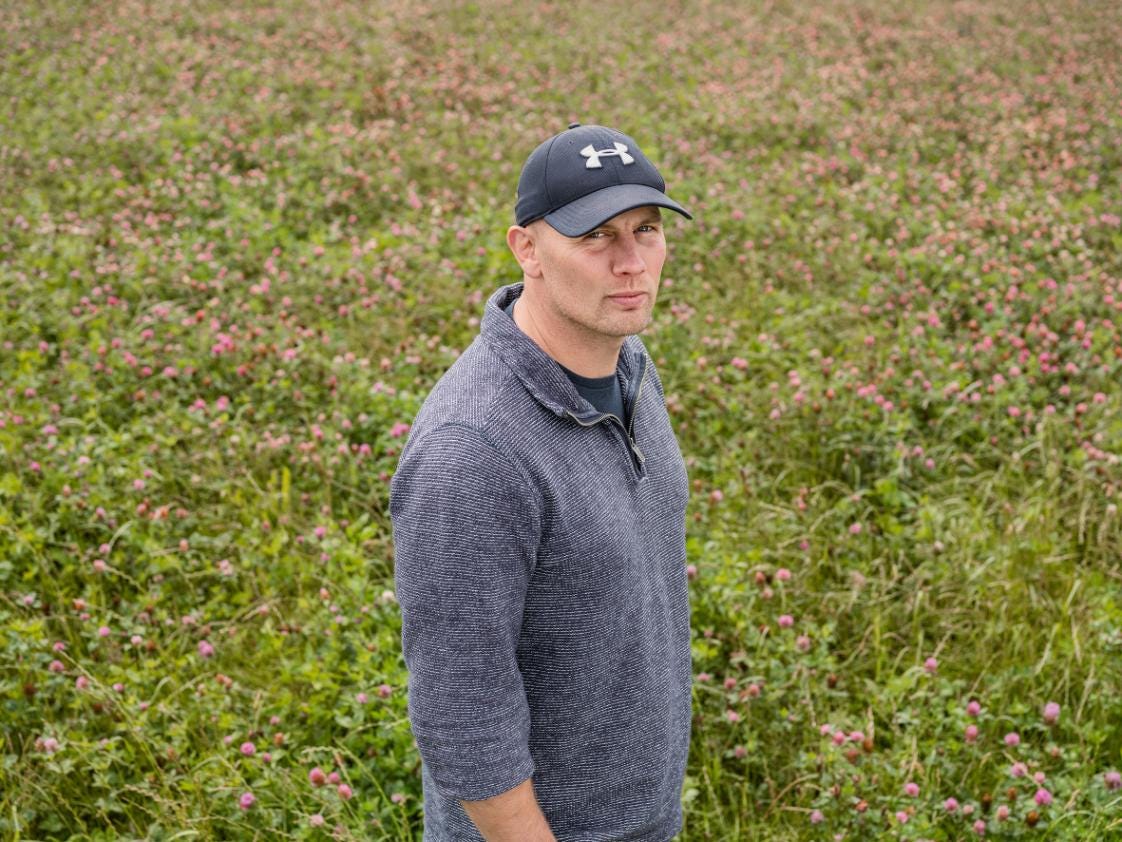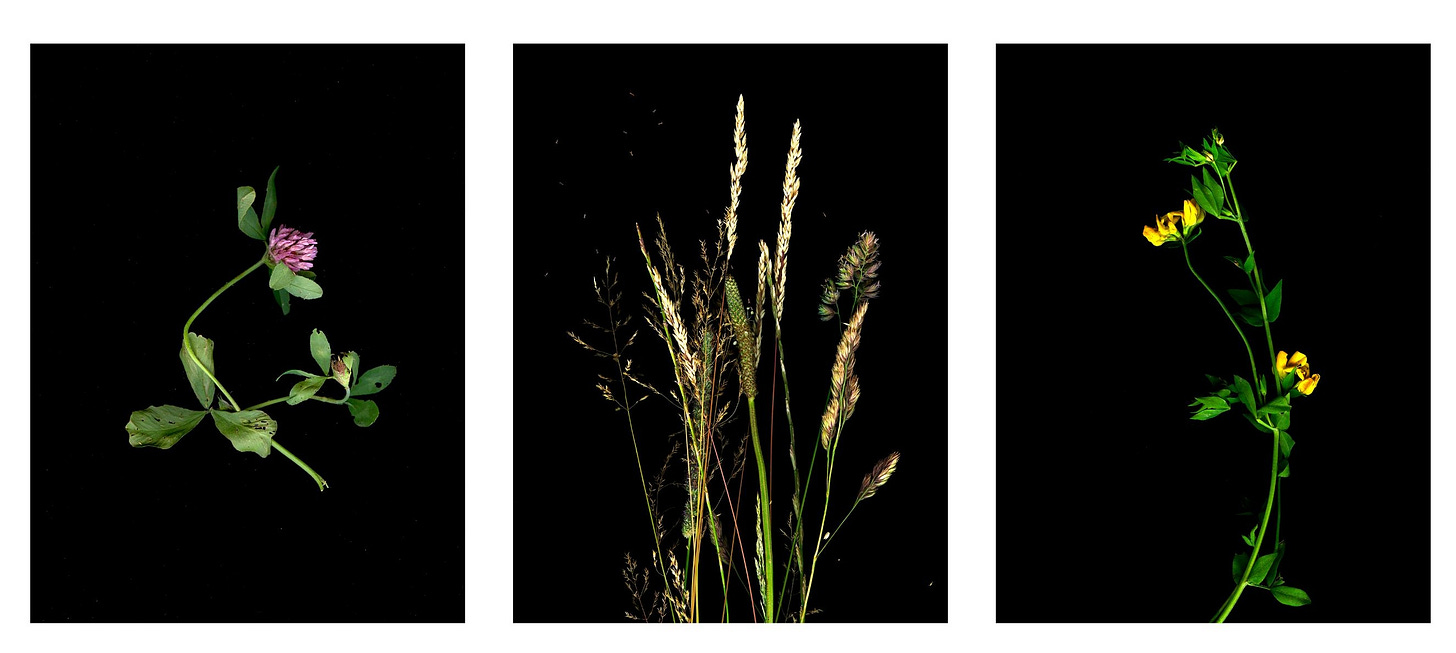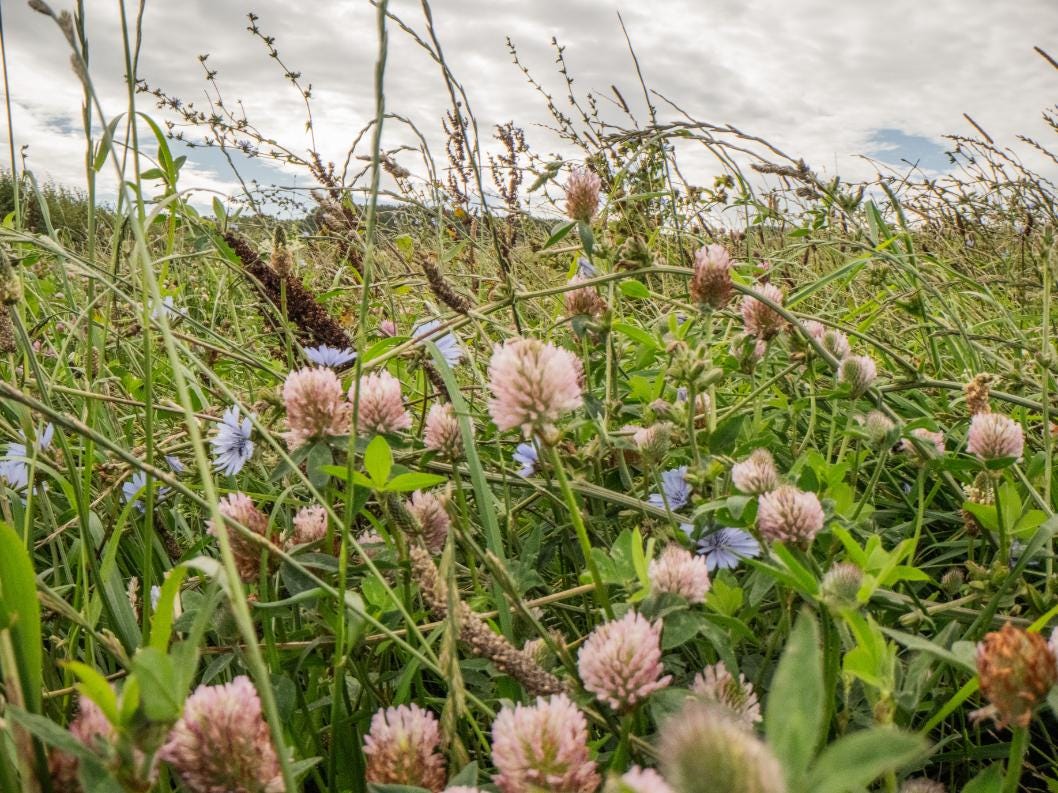Exhibition digs into the magic of soil
The answer, they say, lies in the soil - and photographer Johannah Churchill has recorded just that. Tony Henderson reports.
A year of visits to a Northumberland farm produced a fine crop of images for photographer Johannah Churchill.
The University of Sunderland photography lecturer documented the efforts of farmer Stuart Johnson to move away from high use of fertilisers and chemicals to a policy of rejuvenating the soil and working more closely with nature and biodiversity.
Her pictures will now go on show from Saturday (Nov 9) in an exhibition titled Unearthed: Soil Restoration in Northumberland at The Sill National Landscape Discovery Centre in Northumberland National Park, which will run until January 12.
Degradation and erosion of the soil is an international issue, and returning resilience to the land is seen by many as a growing need in the light of the challenges of climate change.
At the 540-acre West Wharmley farm near Hexham, which he farms with his parents and brother, Stuart now uses only a tenth of the amount of artificial fertilisers compared to just over a decade ago.
"In 2011 we were a high input, mixed farm. We used fertiliser. We used chemicals. We fed large amounts of grain. We used all inputs we thought could help improve our yield. We never really thought about the soil at all,” he says.
Now the farm is no longer ploughed and instead direct drilling is used when planting to minimise soil disturbance, while a livestock grazing regime has also been introduced to reduce soil damage.
Stuart also uses a liquid compost he ‘brews’ in a tank, operates a wormery, and plants clover and herb-rich swards, which also reduce the buying-in of cattle feed.
Read more: Film festival award for Northern School of Art graduate
Biodversity has increased, with curlews returning to the farm.
Last year Stuart won the Soil Farmer of the Year award from the publication Farmers Weekly.
Climate change, believes Stuart, is a “huge issue” and Johannah says: “There is a lot of talk about climate change and what people can do about it, so it was wonderful to find hope in what is happening at the farm.”
In collaboration with the North East Photography Network (NEPN) at the University of Sunderland, Johannah was commissioned by We Feed the UK, a national campaign connecting photographers and poets with food producers, to raise public awareness of their positive solutions to climate change, wildlife recovery and social justice.
Johannah says: “The Johnson farm applies several factors to improve soil health, such as minimising soil disturbance, mechanical and chemical, maintaining living roots in the soil as long as possible during the year, maximising plant diversity and introducing a healthy relationship with livestock.
“These principles help minimise soil erosion and surface run-off, controls moisture retention, heat distribution, sequesters carbon, attracts insects and biodiversity and maximises healthy soil biology.
“It has been my pleasure to learn from the Johnsons and create an exhibition space in which this hard work is celebrated,” she continues. “There are more living things in one teaspoon of healthy soil than there are people on the planet – it’s magic.”
Stuart says: “We Feed The UK is important in getting positive stories to the public – the current vilification of farmers needs to stop. There are small pockets of us trying to be better, which We Feed The UK can help the consumer see and understand, whilst also offering hope to farmers stuck in an imperfect system.
“This project proves that there are other ways to do it that can not only enhance biodiversity and battle climate change, but also bring people together and improve financial performance. Everyone wins and that story needs to be told.”
Sarah Burn, head of engagement at Northumberland National Park, said: “We are delighted to host this exhibition and be part of this collaboration because it draws attention to the importance of soil – our lifeblood - and how it can offer opportunities to help combat climate change, and biodiversity loss.
“As a national landscape discovery centre, it is important that we present new ideas and innovation in practice to visitors to raise public awareness, stimulate discussion and encourage people to think about the small changes they can make in their lives to help the environment.
“Stuart is a local farmer and we’re proud to be able to shine a light on his valuable work and support the local farming community.”
The exhibition launch on November 9 will feature live poetry from North East poet Kate Fox, who has also been involved in the project.
On December 7, there will be a panel discussion with the Nature Friendly Farming Network, Nature North and farmers Stuart Johnson, Sue Seymour and James Robinson plus the first northern screening of Common Ground, a film narrated by Aquaman actor Jason Mamoa about how regenerative agriculture can help heal the soil, our health and the planet.
For more information visit the We Feed UK and The Sill websites







